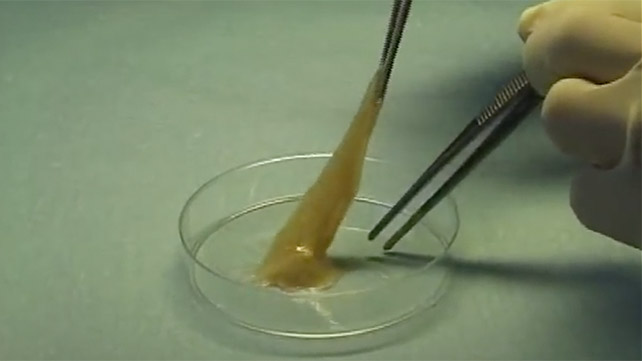
If you are on a birth control pill, you may also experience some discharge. A discharge might be a sign of irritation of the vagina, a sexually transmitted disease (STD), early pregnancy, ovulation, or even postpartum. It's quite a common experience to have a liquid or sticky discharge, given that the hormonal changes in those organs are ongoing, even beyond menopause. Patient education: Vaginal discharge in adult women (Beyond the basics).Usually, a clear jelly-like blob discharge is a healthy and normal sign of ovulation, but vaginal discharge may appear in different forms and from different parts of the female reproductive organs. Centers for Disease Control and Prevention. Bacterial vaginosis – CDC basic fact sheet. American College of Obstetricians and Gynecologists. Practice bulletin number 217: Prelabor rupture of membranes.

Learn more about our editorial and medical review policies.ĪCOG. We believe you should always know the source of the information you're seeing.
#CLEAR JELLY MUCUS PLUG PREGNANCY PROFESSIONAL#
When creating and updating content, we rely on credible sources: respected health organizations, professional groups of doctors and other experts, and published studies in peer-reviewed journals. You can also keep track of your vaginal discharge with the Bab圜enter app calendar Opens a new window and discuss any changes with your doctor.īab圜enter's editorial team is committed to providing the most helpful and trustworthy pregnancy and parenting information in the world. Douching can upset the normal balance of bacteria in your vagina and increase the likelihood of infection. If you're spotting or bleeding, call your provider. These scents can be irritating to your sensitive areas. Avoid bubble bath, scented pads, scented toilet paper, feminine hygiene sprays, and scented or deodorant soaps.If your vulva is irritated, avoid tight pants, leggings, and underwear made with synthetic materials.Change out of sweaty workout clothes or wet swimsuits promptly.Here are some ways to keep your genital area healthy: You can wear panty liners to absorb discharge if you want to, but it's definitely not necessary. There's nothing you need to do about your body's normal vaginal discharge. What can I do about vaginal discharge during pregnancy? Your discharge has a strong and noticeable odor or has changed in color, amount, or consistency from your normal vaginal discharge.Other possible symptoms of trichomoniasis (or trich) include a red, irritated, or itchy vulva or vagina and discomfort while urinating or during intercourse. This may be a sign of trichomoniasis, a common sexually transmitted infection. Your discharge is yellow or green and frothy with an unpleasant odor.This might be a condition called bacterial vaginosis.


For example, more vaginal discharge than usual can be a sign of preterm labor. You're not yet 37 weeks pregnant and notice an increase in the amount of discharge, or a change in the type of discharge."Chances are this is normal pregnancy discharge, but it can be a vaginal or cervical infection that requires treatment."Ĭall your doctor or midwife right away if: "Always mention discharge to your doctor, especially if there's a change," says Layan Alrahmani, ob-gyn and maternal-fetal medicine specialist in Chicago.


 0 kommentar(er)
0 kommentar(er)
